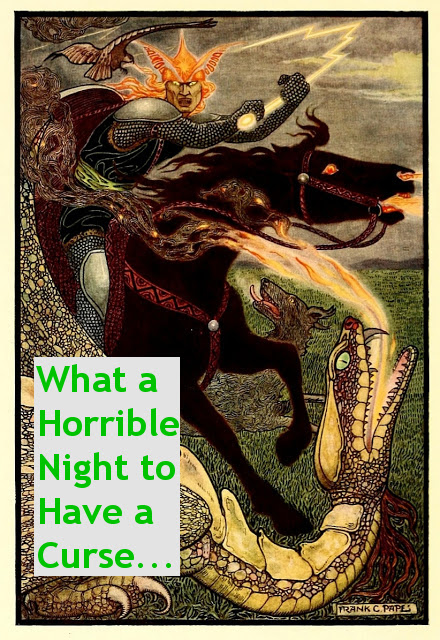I read this article today. It starts out with a dude gaming the system in Jeopardy, and moves on to the general implications of gaming systems. It was nothing really new, but interesting nonetheless. Especially how it matches up with D&D in particular but RPGs in general, and the desire to push out new editions every few years to "clean up the system" (and make more money).
Spells in D&D are a prime example of this, as they're one of the easiest ways for players to think up creative uses to solve problems laterally. OD&D spells were so vaguely defined that DMs and players had a lot of latitude. And players would discover that certain spells allowed "exploits" in encounters. Some exploits later became codified in the rules. Casting light or darkness at a creature's eyes blinds them being explicitly allowed in BECMI, is an example of this in practice.
Others were seen as a problem and got nerfed. Haste originally only sped up movement rates (apparently) but then in later editions also gave more attacks. But since this was seen as too powerful, in AD&D it caused a penalty every time it was cast (aging the recipients). Although later, in 3E, the penalty was removed. In 5E, a weaker penalty (exhaustion) was put into it.
Sleep is another example. In OD&D/Classic, it affects a certain number of hit dice of creatures, no saving throw. In AD&D, if affects a variable number of creatures by their hit dice (on average less than in OD&D/Classic), but still no saving throw. 3E returns it to a set roll for hit dice affected, but lowers the roll (from 2d8 to 2d4) AND it gives them a saving throw when they're first affected. In 5E, the spell affects a certain number of hit points of creatures (and with the inflation of hit points in this edition, this severely reduces the number of creatures affected), and gives them a saving throw each round! Sleep is the go-to spell in Classic D&D. It's the "get out of this encounter free" spell. In 5E, they made the spell so weak it's not even worth considering. Might as well just crank out another damage dealing cantrip...
I digress with this discussion of spells, though. They make a good example of how the people in charge of shaping each edition try to use it to eliminate the "loopholes" and "exploits" that, like the linked article above talks about, are technically allowed by the rules, but seem to be "unfair" to players when they see them used.
But players trying to exploit the system, in some senses, is actually a form of good play. Sure, the CoDzilla and Pun-Pun of 3E were examples of bad exploitation. I'm sure 5E has its own (although they explicitly took steps to try and limit this). Not all exploits are created equal, though. I think what determines the perception of the exploit is heavily dependent on what's seen as the goal of play.
If exploration is viewed as the main purpose of the game, and treasure acquired is the measure of success (old school style), then any exploit that is used to avoid a risky combat (a sleep spell, grabbing treasure then teleporting away, a save-or-die spell that takes out the dragon in one round) is a good thing! It's only when combat is prioritized, and "fair" combat is considered to be the hit point slog-fest (like 5E does) that these exploits are seen as unfair.
One last point: companies putting out new editions of their games every however many years is also a sort of exploit. They claim to be fixing the system to remove these loopholes and end the unfair exploits. But there are always loopholes and unfair exploits. They type just changes. The companies are exploiting our desires for "shiny and new" and our fears of being left out of the group to keep their profits rolling in. Not blaming them. They need to keep making money if they want to stay in business. Just something we should keep reminding ourselves of when the splatbooks hit the fan.
At Arm's Length
3 hours ago





No comments:
Post a Comment